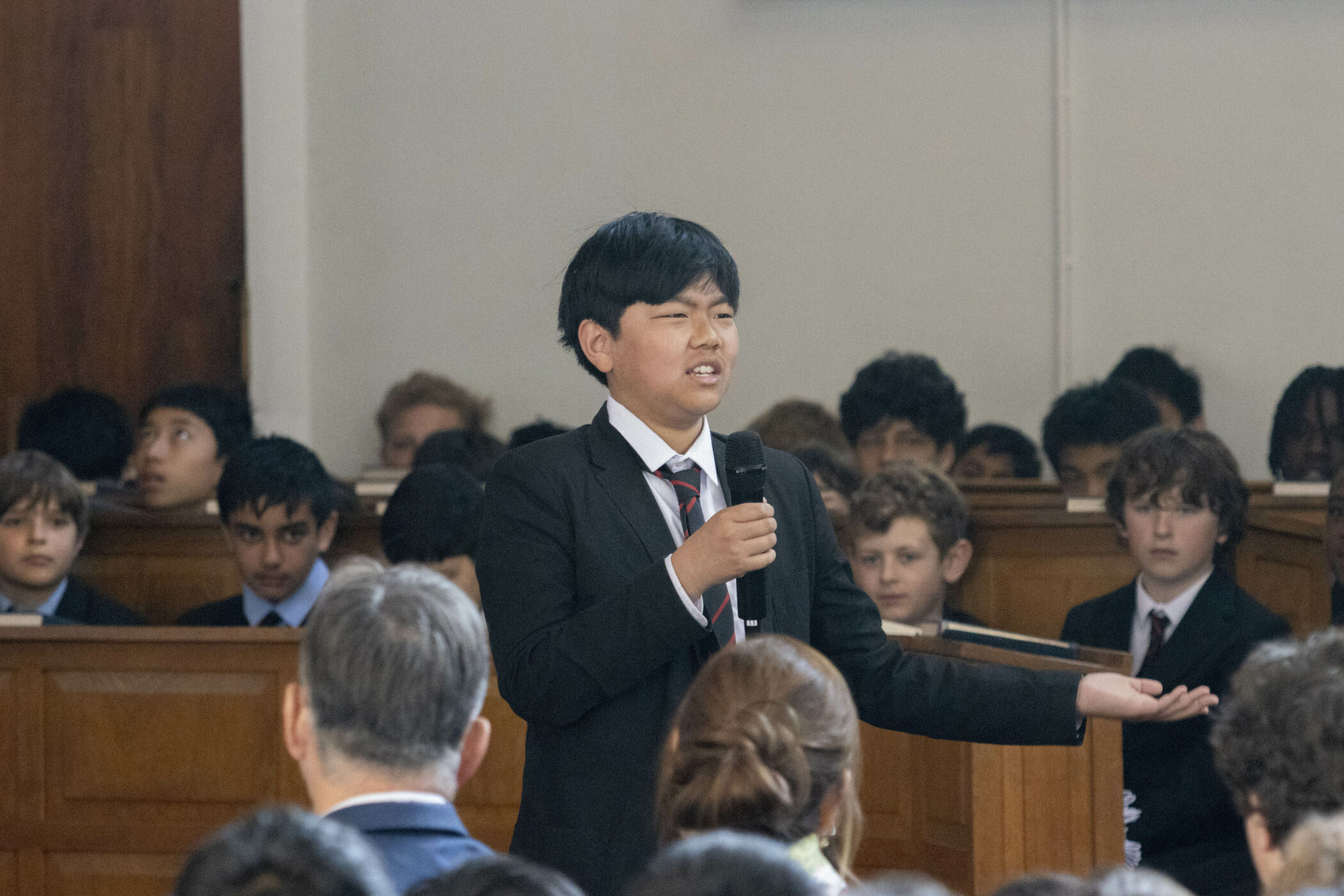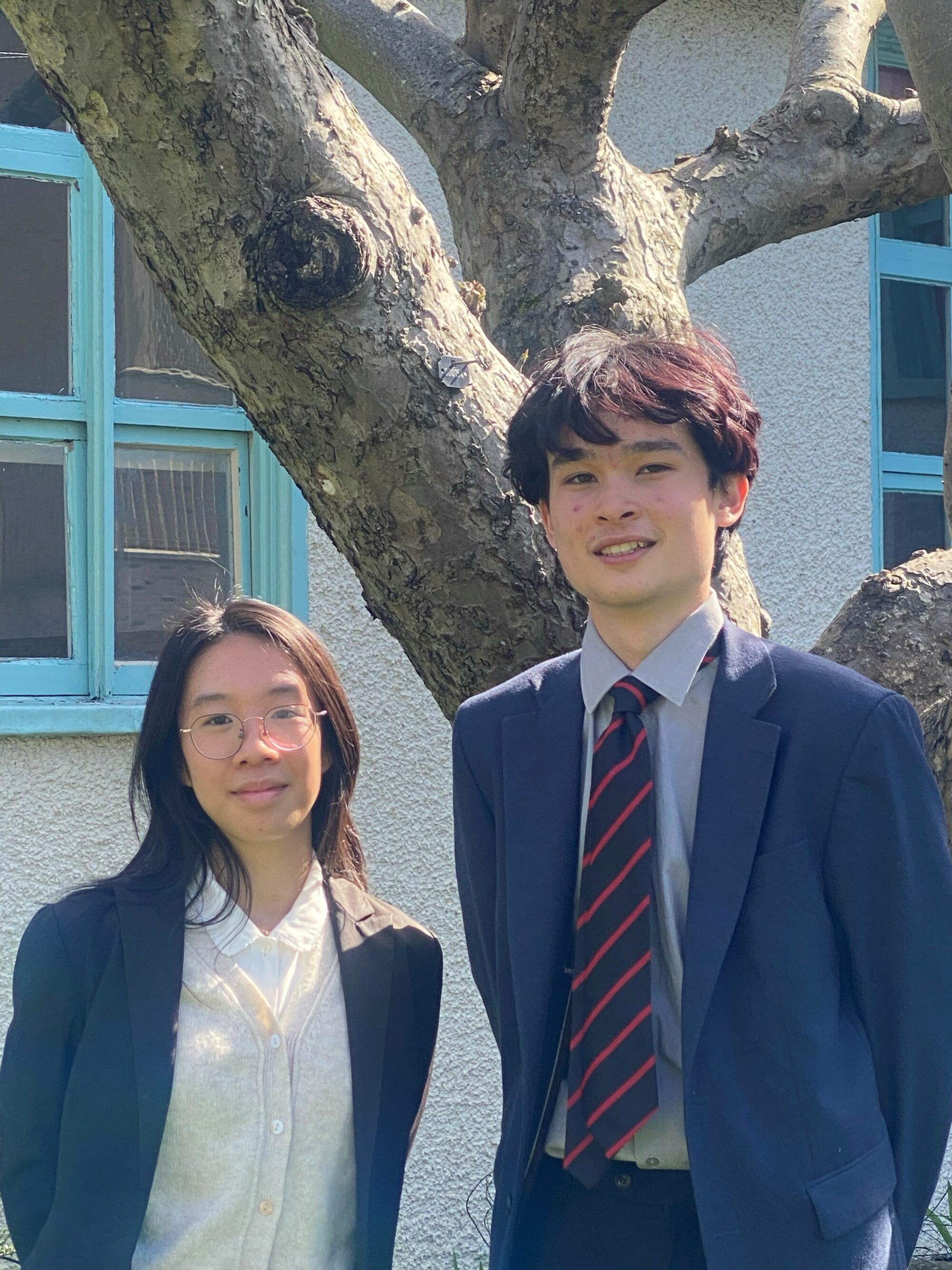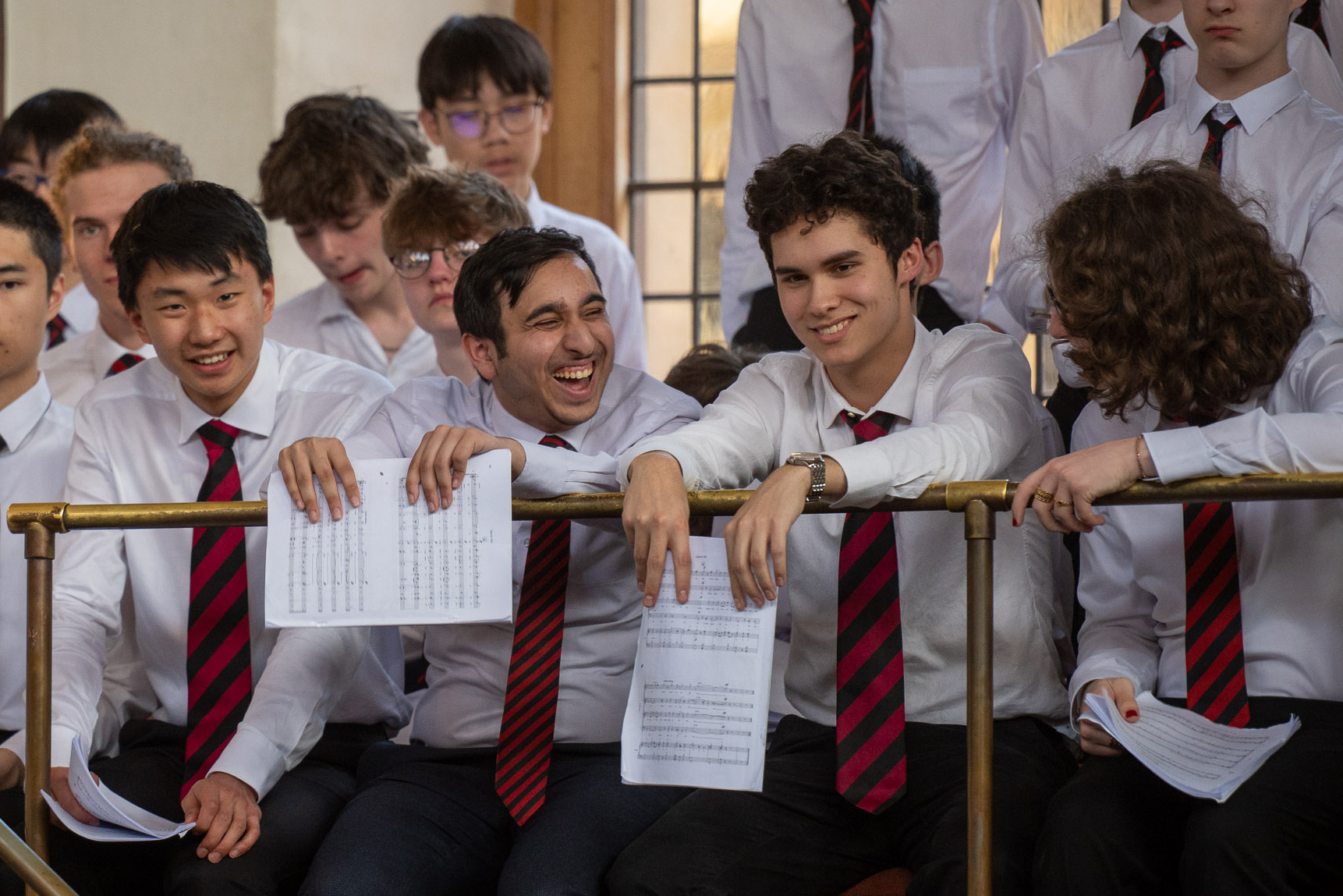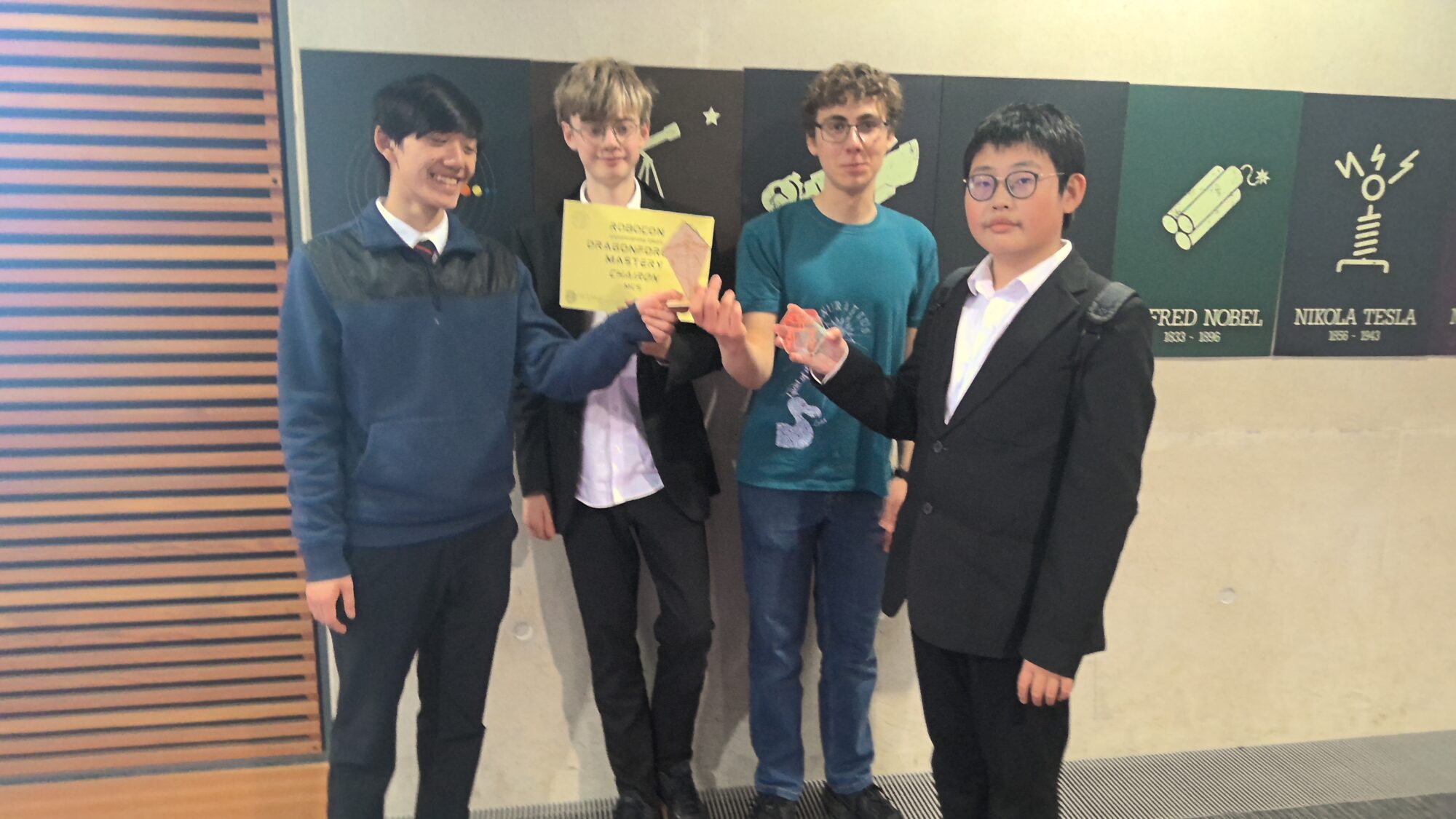We were notified by Michael’s daughter Gemma that he passed away in 2018. The following obituary comes from The Irish News.
‘Michael Swallow was initially torn between a life in music or medicine. As a boy he had been a chorister at Westminster Abbey. Later, as a mature bass, he would sing there at the coronation of Queen Elizabeth. He had by then, with his mother’s encouragement, opted to study medicine, the first step towards a career as a celebrated neurologist based at Belfast’s Royal Victoria Hospital. A gifted clinician, many disabled children in particular benefited from his expertise over the years.
However,he never lost his passion for music and his involvement with the Royal Hospital choir, the St George’s Singers and Ulster Orchestra greatly enhanced the cultural life of the city. His belief in the healing power of music saw him introduce it onto wards, with one story recalling him sitting at a piano wheeled into a ward round, as both staff and patients began the day singing.
Dr Swallow later formally married the two disciplines by establishing the NI Music Therapy Trust, now known as Every Day Harmony, which described his life as ‘an example and inspiration to us all’. He also helped run Share Music courses in Co Fermanagh, in which people with physical disabilities collaborated with able-bodied musicians. His dedication saw him awarded an OBE for services to music therapy and arts for disabled people in 1995.
Born in 1928, Michael Swallow had studied medicine at King’s College, the University of London, and Westminster Hospital and was inspired by leading neurologist Dr Swithin Meadows to pursue a career in that intellectually stimulating field. While working at the National Hospital for Neurology and Neurosurgery he also became friends with Drs Sydney Allison and Louis Hurwitz, both working at the time in Belfast. He had previously spent time at Waringsfield Military Hospital in Co Down during National Service and when Dr Allison vacated his consultant post at the Royal he applied. He joined the staff in 1964, and remained there until his retirement in 1988.
Colleague Dr Stanley Hawkins said he developed interests in neuro-ophthalmology, Parkinson’s disease, dementia, rehabilitation and muscle disease. ‘His clinical practice included the Royal, Claremont Street, Belfast City Hospital, and units for chronically disabled in Musgrave Park and Thompson House in Lisburn. He also travelled to Altnagelvin and Coleraine hospitals to conduct regular outreach clinics.
‘Michael was a gifted clinician. He was highly respected by consultant colleagues,trainees and nursing staff. He was very attentive to his patients, kind and caring. He had the ability to make his patients feel that he was devoting all his attention to them, and was on their side. A fact of neurology that particularly interested him was the assessment of disabled children with multiple handicaps. He told me he enjoyed the considerable challenge of trying to help such children and their families.’
With Dr Eddie Martin in Dublin, Dr Swallow helped form the Irish Neurological Association in 1965, with gatherings often retiring to his home in Deramore Drive where he would entertain with Scott Joplin or Cole Porter music on the piano. He is also remembered by medical students as a talented and generous teacher, whose weekly case demonstrations influenced generations of graduates’.
His friend Roger Firkins (OW 1946) recounts their school days:
‘The latest Bridge included an obituary of Michael Swallow copied from an Irish newspaper. Naturally it did not mention any of his pre-Belfast life in England.
As our lives were closely intertwined for 10 years or so from 1937, what follows may go some way towards filling in that gap.
I went to Westminster Abbey as a probationer in the choir in 1937, six weeks before the coronation of King George the Sixth, and Michael came six months later. We soon found that we both came from Worthing and that naturally created a bond. Sadly, neither of us sang in the main choir for long due to the out-break of war.
Three days before that, however, Michael’s father took us to Hove to see Sussex play Yorkshire – the last county cricket match there until after the war.
We never returned to Westminster, but were evacuated to Christ’s Hospital near Horsham. Here we were divided roughly in two or three to a house. Many of us were not happy, but Michael and I were very lucky as both our housemasters were musicians. They did not favour us but made sure we were treated the same as all the other boys.
After four terms it was clear that the war was not going to end soon. The Abbey authorities decided not to continue paying our scholarships with nothing in return and consequently ‘sold’ us to other Cathedral or college choirs. Once again Michael and I were chosen together, by William McKie, then organist of Magdalen College, Oxford.
This had the great advantage of continuing until age 18 and not requiring yet another move when one’s voice broke. After about a year, McKie left to join the RAAF (Royal Australian Air Force) and was succeeded by his predecessor,aged over 70, who was very deaf, yet able to command the love and respect of his choristers. When he died from a fall, everyone was very upset. This happened soon after the OUDS production of ‘A Midsummer Night’s Dream’ in Magdalen Grove. The Magdalen choristers were involved and Michael and I were Chief King’s Fairies!
One of our favourite leisure activities was to go to Great St Mary’s where Michael was allowed to play the organ.
Soon after arriving in Oxford we received a letter from 2 old ladies who had been Westminster Abbey congregation, but had now evacuated to Oxford. We were invited to tea. When we left something was slipped into our hands – a 2 shilling piece. As we were both always impecunious, this was very welcome. I regret to confess that for some time, whenever we were broke, we decided it was time to visit the old ladies. This worked fine until they realised why we were calling rather often. That time our parting gift was bigger in size. We waited until we were out of sight to investigate. What was it? A pumice stone to clean our inky fingers – and NO money.
A final lasting memory of Oxford was VE day. Bob Stanier let the boarders loose on the condition that they reported to him when they returned. Everyone took part in a great celebratory party which
consisted of raiding all the public conveniences for toilet rolls and wrapping them round a bus at Carfax.
After we left school our ways separated, but both to King’s College – me to Cambridge and Michael to London.
While at Westminster College studying Medicine, Michael conducted several concerts by the College Music Society. I took part in one of these, held in St Luke’s in Chelsea – it was a great success and I still have a recording of it’.
Dr Michael Swallow died aged 89 on May 13. Predeceased by his wife Barbara, he is survived by his children Nicky and Gemma and family circle.
 MCS ranks among the top independent secondary schools, and in 2024 was awarded Independent School of the Year for our contribution to social mobility.
MCS ranks among the top independent secondary schools, and in 2024 was awarded Independent School of the Year for our contribution to social mobility.

 28 of our pupils achieved 10 or more 8 or 9 grades in 2024.
28 of our pupils achieved 10 or more 8 or 9 grades in 2024.
 In 2023-24, MCS received over £448,000 in donated funds.
In 2023-24, MCS received over £448,000 in donated funds.




